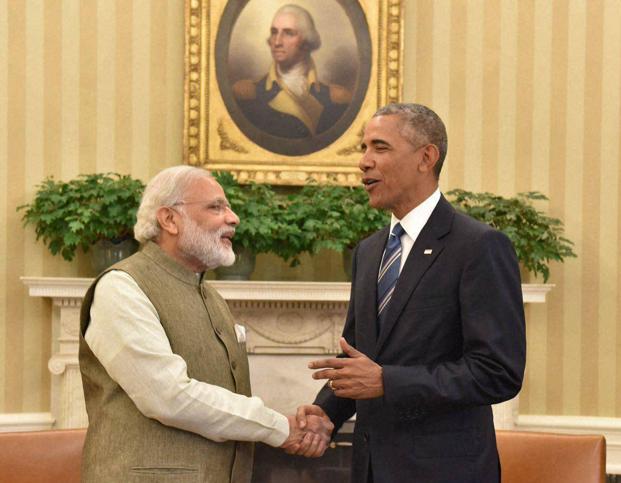New Delhi: India on Tuesday improved its chances of ending its nuclear pariah status and joining the elite Nuclear Suppliers Group (NSG), a body that controls global nuclear trade.
On Tuesday, the Missile Technology Control Regime (MTCR), a key anti-proliferation grouping, agreed to admit India.
Two Indian officials said India’s candidature was not opposed by any of the 34 countries in the MTCR. The deadline for raising any objections of reservations to India’s candidature was Monday.
Now all eyes are on India’s pitch to join the NSG, preliminary discussions for which will begin next week in Vienna.
A lot will depend on whether Prime Minister Narendra Modi is able to convince US President Barack Obama to do the “heavy lifting” and persuade other members of the NSG—particularly China—to back India’s candidacy. On its own, the US has been supportive of India’s candidature for NSG membership as well as other non-proliferation groups.
Modi is currently in Washington on a bilateral visit at the invitation of Obama and the two began their talks early on Tuesday at the White House. The talks were to be followed by a lunch hosted by the US President.
At a press conference following the meeting, Obama signalled his support for India’s NSG membership, the Press Trust of India reported.
This is Modi’s fourth visit to the US in less than two years.
India’s entry into the NSG is currently being opposed by China, which is supporting Pakistan’s entry into the grouping as well.
China has insisted that India sign the nuclear non-proliferation treaty before it becomes a member of the NSG—a condition India has rejected. Last month, Indian foreign ministry spokesman Vikas Swarup pointed out that France had became a member of the NSG before it signed the non-proliferation treaty.
The Obama administration has previously backed India’s membership into MTCR and three other export control regimes—Australia Group, NSG and the Wassenaar Arrangement.
India’s entry into the MTCR comes days after India announced that it is subscribing to the Hague Code of Conduct against ballistic missile proliferation, which is considered to be complementary to the MTCR.
The Hague Code of Conduct was outlined in November 2002 and now has 137 adherents.
China, Pakistan, Israel and Iran have not yet joined the voluntary regime.
India has been trying to gain entry into the four groups for some years. It has been trying to harmonize its domestic laws with international laws in order to ensure that it qualifies for membership.
“India wants to be part of the rule-making groups rather than being out of them and on the sidelines. India has strictly adhered to all the rules of non-proliferation without being part of the nuclear non-proliferation treaty and other such treaties,” said a person familiar with the developments who did not want to be identified.
The Wassenaar Arrangement controls transfers of conventional arms and dual-use goods and technologies, thus preventing destabilizing accumulations.
The Australia Group is an informal forum of countries which, through the harmonization of export controls, seeks to ensure that exports do not contribute to the development of chemical or biological weapons.
Established in April 1987, the voluntary MTCR aims to limit the spread of ballistic missiles and other unmanned delivery systems that could be used for chemical, biological and nuclear attacks.
The MTCR groups urge its members, which include most of the world’s key missile manufacturers, to restrict their exports of missiles and related technologies capable of carrying a 500kg payload at least 300km, or delivering any type of weapon of mass destruction.
Following the MTCR membership announcement, India and the US could fast-track their discussions for the Predator drones for the Indian military.
“Yes, General Atomics Aeronautical Systems Inc. is aware of India’s interest in Predator series remotely piloted aircraft,” Vivek Lall, chief executive officer of the US and International Strategic Development of General Atomics, the largest privately-held American defence company which designs and manufactures the Predator drones, was quoted as saying by a PTI report.
